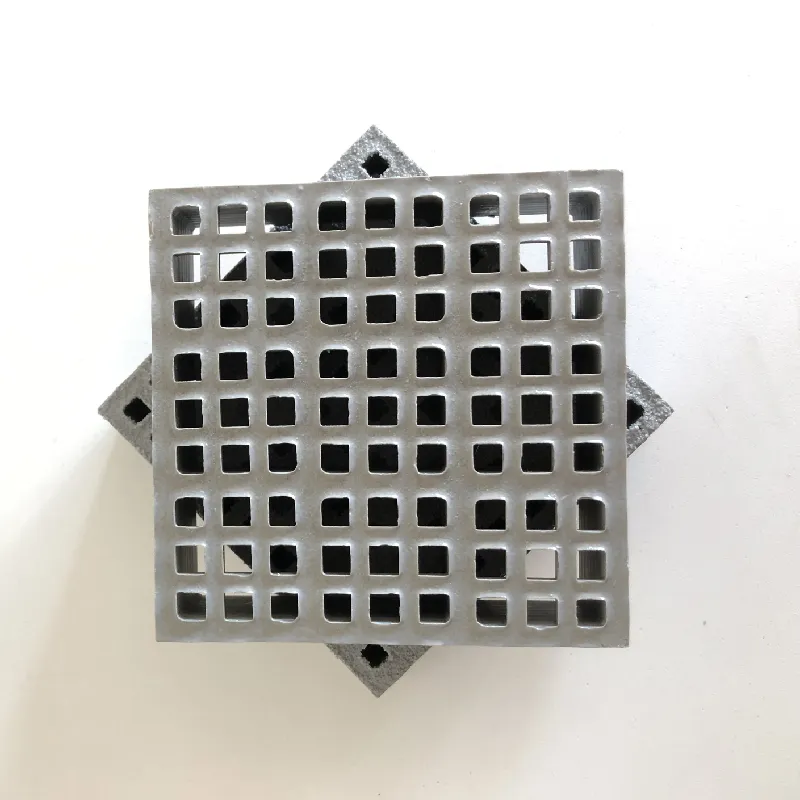loading...
- No. 9, Xingyuan South Street, Dongwaihuan Road, Zaoqiang County, Hengshui, Hebei, China
- admin@zjcomposites.com
- +86 15097380338
- Welcome to visit our website!
FRP Sand Filters for Enhanced Water Treatment Efficiency and Durability
The Importance of Sand Filters in Water Treatment A Focus on FRP Technology
In today’s world, where water scarcity and contamination are pressing issues, the need for efficient water treatment solutions cannot be overstated. One of the most vital components in water purification processes is the sand filter. Among various materials used in filter construction, Fiber-Reinforced Plastic (FRP) has emerged as a preferred choice due to its outstanding properties and benefits. This article explores the significance of sand filters, the advantages of using FRP, and their applications in various industries.
Understanding Sand Filters
Sand filters are widely used for the removal of solid particles and impurities from water. The basic operating principle involves passing water through layers of sand, which traps larger particles, while allowing cleaner water to flow through. This method is effective for both surface water and groundwater treatment. Sand filters can be designed in various configurations, including gravity or pressure filters, making them versatile solutions for different water treatment scenarios.
The Role of FRP in Sand Filters
Fiber-Reinforced Plastic (FRP) is a composite material made from a polymer matrix reinforced with fibers, typically glass or carbon. This combination results in materials that are lightweight, durable, and resistant to corrosion and chemical degradation. These characteristics make FRP an excellent choice for constructing sand filter vessels.
1. Durability and Longevity One of the critical benefits of using FRP in sand filters is its remarkable lifespan. Traditional materials, such as steel or concrete, can corrode over time due to constant exposure to water, chemicals, and varying environmental conditions. In contrast, FRP is resistant to corrosion, ensuring that the sand filter maintains its integrity and performance for an extended period.
2. Lightweight FRP is significantly lighter than traditional materials, which simplifies installation and lowers transportation costs. This feature is particularly beneficial in regions where heavy machinery may not be accessible, or where labor costs are high.
3. Cost-Effectiveness While the initial cost of FRP may be higher than conventional materials, the long-term savings on maintenance, replacement, and operational efficiency make it a cost-effective solution. The durability of FRP means less frequent replacements and repairs, reducing the overall lifecycle costs of the sand filter system.
sand filter frp

4. Customization and Flexibility FRP can be molded into various shapes and sizes, allowing manufacturers to create custom solutions that meet specific client needs. This adaptability enables the integration of sand filters into diverse environments, ensuring optimal performance regardless of the application.
Applications of Sand Filters with FRP
The use of sand filters made from FRP spans across several industries
- Municipal Water Supply Sand filters are essential for treating drinking water, ensuring that contaminants are removed before distribution. FRP sand filters provide municipalities with a reliable solution that meets regulatory standards.
- Industrial Wastewater Treatment Many industries generate wastewater that contains harmful substances. Sand filters constructed from FRP play a crucial role in treating this water, allowing for its safe discharge or reuse in various processes.
- Aquaculture Maintaining clean water is vital in aquaculture. FRP sand filters help manage and purify water in fish farms, contributing to healthier ecosystems and sustainable practices.
- Swimming Pools In the recreational industry, FRP sand filters are widely used in swimming pools. Their durability and efficiency ensure clean and safe water for users, enhancing the overall swimming experience.
Conclusion
In conclusion, sand filters are fundamental components of water treatment systems, and the use of Fiber-Reinforced Plastic significantly enhances their performance and longevity. The advantages of FRP—such as durability, lightweight construction, cost-effectiveness, and customization—make it an ideal choice for various applications. As water issues continue to escalate globally, investing in advanced filtration technologies like FRP sand filters will be crucial in ensuring the availability of clean and safe water for future generations. Whether in municipal water treatment, industrial applications, or recreational facilities, FRP sand filters offer a promising solution to meet the demands of modern water purification challenges.
-
GRP Structures: The Future of Lightweight, High-Performance EngineeringNewsJun.20,2025
-
FRP Water Tank: High-Performance Storage for Corrosive and Clean Water SystemsNewsJun.20,2025
-
FRP Square Tube: The New Industry Standard for Chemical and Structural ApplicationsNewsJun.20,2025
-
FRP Pultruded Profiles: The Ultimate Choice for Lightweight Structural StrengthNewsJun.20,2025
-
FRP Handrails: The Safer, Smarter, and Stronger Choice for Modern InfrastructureNewsJun.20,2025
-
FRP Grating: The Smart Solution for Durable, Lightweight Industrial FlooringNewsJun.20,2025
-
Why Choose a Galvanized Water Tank for Your Storage NeedsNewsMay.21,2025
